|
Hunger Hunger is a tricky beast: Those who have it Growling and grumbling, Nagging to be satisfied, Hide it from others. After all, Not everybody wants to know it They fear its demands Believe that to placate it Will mean less For themselves. Sometimes, Hunger, though shy with strangers, Leaves clues of its presence: Perhaps an empty cupboard Where once it had foraged or Its owner’s clothes Now worn and hanging thin Over rattling bones. A child might sit apart to eat One small sandwich Trying to keep Hunger at bay Which stares Big-eyed at the children With canteen money, filled rolls and fruit. Hunger grows during times of hardship And breeds during a pandemic. It looks for solace, To be fed But so many are blind They look away Shake their heads at swollen empty stomachs and Hollowed cheeks. They are sure Another will help. 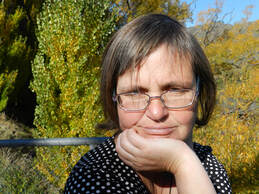 Lynda Scott Araya is an educator and writer who lives in New Zealand. She has been published or as work forthcoming in Verse-Virtual, Grey Thoughts, The Wild Word, The Pangolin Review and more.
0 Comments
VIGIL “The world is indeed full of peril, and in it there are many dark places…” J.R.R. Tolkien It was light once Before the land imploded Before the shutdown Before children shuddered The sun shone then And the moon Appeared crisp and clear Not like now – Shrouded in smog – And there were animals And growing things Like trees and food Instead of ration packs And there was water – Clean water – There was hope then All but obliterated now Yet like a winter solstice When light returns We few wait…we wait Though still in darkness For the slightest glimmer 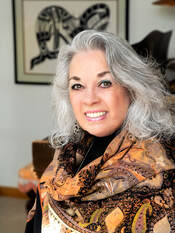 Marsha Warren Mittman’s humorous memoir, You Know You Moved to South Dakota from New York City WHEN… (Scurfpea Publishing), is a “Western Horizons Award” winner. Poems/essays/short stories have appeared in American, British, German, and Australian literary journals and anthologies, including six Chicken Soup for the Soul tales. The author of three chapbooks, Mittman’s received various poetry/prose distinctions in the US and Ireland, and a Writer’s Residency at Alabama’s Fairhope Center for Writing Arts. A brief statement by Mr. Allen follows each poem OUR DAILY CURSE Give us this day Our daily curse Which impacted our kin, Seventeen of us youth, Our elders, including our two dear Eldest females under one roof-- Give us this day Our daily curse Which presented us w/ Almost emptied shelves, Cupboard & refrigerator nearly clear, Our meals reduced to mustard sandwiches-- Give us this day Our daily curse Which forced us to contend for space With colonies of roaches & the occasional rat, Two or three in a bed against evening cold, Waiting for warmth, conditions like that-- Give us this day Our daily curse Which robbed us of necessary Charmin© rolls on the toilet, had us reaching For newspaper for wiping, deprivation Was the norm in my 7-yr.old life-- Give us this day Our daily curse Conclusive proof That the god we prayed to nightly Was so sadistic, they abandoned Black folks to suffer slowly from Our daily curse. My early childhood remembrances of dealing with hunger & poverty at the same time. At my old house (and it was a big one), as quick as my aunts, uncle, grandmother and great-grandmother would bring food, beverages and sundry items home, they'd be gone within days. We'd run out of food, toilet paper, you name it. This feast-and-famine cycle happened a lot, especially with kids to feed and raise. FEED This ain’t no charity. This is a protest. Supermarkets, hotels, Eateries, coffeeshops, Make waste out of fresh & prepared Food, tonnes, at day’s end. This ain’t no church function. This is a protest. Bullets, assault rifles, tanks, Aeroplanes, destroyer ships, bombs Make far-away lands killing fields. National budget spent mostly on this, forget homes. This ain’t no city programme. This is a protest. Hunger tends to exist In the First World, too. So food is recovered From rotting as waste. This ain’t no welfare line. This is a protest. Ongoing against military build-up, Gearing up for war, nights and days Dining from empty plates, drinking from empty cups, Sleeping on empty bellies, dreaming of a decent meal. Revolution sometimes begins from The bottom of a bowl. Public space gets reclaimed. That space becomes inclusive. Fresh, prepared, free Vegetarian food is shared with neighbours. Afterwards, workers & poor alike leave The corner with fuller bellies. Hunger is much worse on the streets. So some do what class society fails to do: Feed the people. Food to every fork. This ain’t no charity. This is a protest. My salute to the work of international hunger relief collective Food Not Bombs. I used to work with the San Francisco and East Bay chapters. They were the one social justice group I knew of that connected hunger with poverty, food-wasting and the federal government's national defense budget. They were saying, through their actions, "Feed the people, not the war machine. BARREN Barren Streets—Oakland’s 74 miles closed To cars—Mayor Schaaf prioritises Two-wheeled exercise and safety For gentrifiers. Barren Subway stations—Social Distancing maintained To the extreme. Underground Solid concrete ghost town. Barren Hotel rooms—They’d make better Shelter in place for the homeless than being Warehoused in close quarters on mats. Existing method: Good way to get infected. Barren Shelves—Inside the supermarket-- The spirit of hoarding Cleared them of supplies. Long line of humanity outside are in for a nasty surprise. Barren Heart—There’s Nothing left dwelling within the husk for some. Nothing left but hostility—Blame for sickness Lands on descendants of Asia. Barren Describes this reality, re-configured By rapid infection—Humanity homebound-- There’s no reverting back To normal after this. I survived Ten presidents, the residual terror of four Foreign wars, power outages, outbursts of nature, A petrol shortage, evictions and homelessness. I will survive this, even as this contaminated air World quickly goes Barren. Personal observations/feelings on how the Coronavirus pandemic changed the Bay Area, Oakland and San Francisco. WOULD YOU? Would you… Bite into a watermelon without seeds? Munch into an ear of corn without taste? Suckle the bittersweet juice from a pomegranate the size of a baby’s skull? Would you… Chew on a tomato grown with fish genes? Eat bread made with wheat that can withstand heavy clouds of insecticide mist? Cook a meal with spicy chili peppers that can make their own pesticide? A loaded gun is no longer required To play Russian Roulette with your own body. The game can now be played much slower When feasting on the cisgenic harvest. Keeping hunger away Original intent Perhaps an excuse by scientists. The poor are left to take that gamble. White rats in a cage took a chance On a potato they were fed for dinner. Liver failure Weakened immunity Are what they’d gotten in return. Will these be the effects That mistakes of science Corruptions of nature Have on us? A loaded gun is no longer required To play Russian Roulette with your own body. The game can be played much slower When feasting on the cisgenic harvest. I wouldn’t take such a chance. Would you? W: 9.6.13 [ For Miguel Robles, Rachel Parent and Tami Canal. ] [ From the new book Elohi Unitsi: Poems [ 2013 -2018 ], Conviction 2 Change Publishing, 2020. ] A statement against the genetic modification of food. A few documentaries, including one produced by the University of New Mexico, inspired this poem. In this audio recording Dee Allen is reading his poem "BARREN": 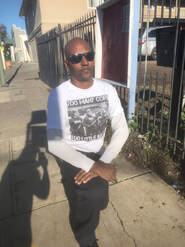 Dee Allen is an African-Italian performance poet based in Oakland, California. He’s been active on the creative writing & Spoken Word scene since the early 1990s. He is author of five books (Boneyard, Unwritten Law, Stormwater and Skeletal Black, all from POOR Press, and his newest, Elohi Unitsi*) and 24 anthology appearances including Your Golden Sun Still Shines, Rise, Extreme, The Land Lives Forever and Civil Liberties United, edited by Shizué Seigel. *TSALAGI (Cherokee): “Mother Earth.” Pronounced: Ell-oh-ee Oo-nee-chee Prayers in Need The prayers of missing meals grow cold on the backroom tables of the poor, down the long hall of broken promises. The prayers of mothers fall on vines of famished words. So few are the ways to tell a child—there’s not enough. The prayers of empty bowls and the prayers of useless spoons clatter in closets of want. In silent kitchens, the prayers of being heard simmer as they wait for answers. Tonight, in the skies above the twinkling cities of the satisfied, the prayers of those in need wither before they reach the stars. Click on the button below to listen to Henry Crawford reading his poem 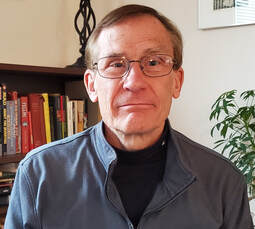 Henry Crawford is a Maryland poet and the author of two poetry collections, American Software (2017) and the Binary Planet (2020). Question And if we know that there is food for all-- and many out of work are starving now-- why do the powerful disregard the call? The hungry wait in line, standing tall. Some leave empty-handed—why and how? Of course, we all know there is food for all. It’s said that it will worsen by the fall-- no flour, meat, no creamy milk of cow. See how the powerful disregard the call. The farmers find no market for their haul, and so they hide their crops beneath the plow. The powerful know it could be food for all. Where’s the people’s aid in protocol? Destructive like the trash from an ocean scow. And the powerful disregard the call. The hungry infants cry. The world has stalled. Sweat does not collect on many worker’s brow. And if we know there’s food out there for all, why do the powerful disregard the call?
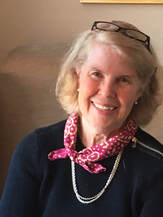 Anne Harding Woodworth is the author of six books of poetry, with a seventh, Trouble, coming out in late 2020. Her poetry, essays, and reviews are published in journals in the U.S. and abroad, in print and on line. She lives in Washington, D.C., where she is a member of the Poetry Board at the Folger Shakespeare Library. Hunger attraction “Stay! Keep a distance_” A talk to set people free For a slave master arrived_ Descended and made self at home In the East_ thus had to spread To the West, North and South Like the wings of a bird Ready to migrate... “Isolate! Keep in quarantine_” An innocent directive lifting guilty Repercussions to! summon the less And even the used-to-be privileged_ Into the shelter of insufficiency. “Listen to live_ to die!” The best option there is_ there was And there will be...because it feels better To live and die_ than to die at first glance Without a face mask and clean gloves. The world wrestles dirt and entirely Becomes cleaner than a whistle_ But when the referee blows the whistle The bellies carry cleanliness more than the food, It was just but supposed to carry in the, Pre-virus period -- hence godliness becomes Easier as the wholeness died of Hunger and thirst. No more brother’s keepers as the brother Lies on a deathbed coughing, sneezing, So feverous and in dire need to provide Food for his other brother but... The virus took the muscle back to the gym And watched weakness, panic and fear Awash the land with destruction. Where did the virus come from? Why did the virus come at a time of this? The aftermath and the present-math Is a world full of hunger and what’s_ there for us When the end just comes to an end? 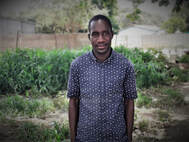 Martin Chivaku is a poet from Zimbabwe. You can find Martin on Twitter here: Chivaku Martin My Pantry Big jars full of quinoa, brown rice, millet, even teff and couscous. A poor flat world—Bolivia, Bengal, Zambia, Ethiopia, Morocco-- has given me here in the Shenandoah Valley these exotic food gifts. Countries trade staple foods for milk condensed and gushed into cans from the teats of cows overgrazing our western prairies. The rich flat world desires ever more, whatever grows over the horizon. But we need some hills to see over. So, tariffs and custom controls. Now the voracious virus has jumped the man-made walls. The entire flat world flips over like an omelette missing the pan. Village farmers in Bolivia, Bengal, Zambia, Ethiopia, Morocco, can no longer tread the feeder roads to haul their crops to market. Families in war zones—Yemen, Sudan, Ecuador—have no safe moist soil for food. Humans there waste with hunger. Starvation soon. I watch the news and close my eyes at swollen bellies, infant eyes enormous, arms and legs like the shift sticks on our farm trucks. Not in my back yard, though. I have learned what inanition does to school-age children with supurating sores, mothers with breasts like emptied sandwich bags and black eyes when frustrated fathers rage with their hands. And now the food banks in my home town are short of basics for the long lines of hungry here in this rich agricultural valley. And this season, I plan to grow in my own back yard potatoes, cabbage, onions, beets and maybe sunflowers as a luxury. 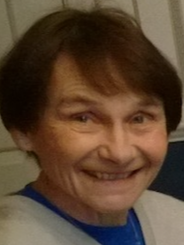 Linda Ankrah-Dove has done aid work in many food-insecure countries. She now trusts poetry to touch hearts and motivate us to change the world into a healthy paradise for all. This Virus Knows No Boundaries Farmers turn the dirt My uncles in rural Michigan sure did My birth certificate says occupation father: farmer With borrowed tractor and harrows strong Corn, vegetables, dairy, and beef My big sisters helped, could name all the tools We put up vegetables to eat all winter Farmers turn the dirt In rural Senegal my uncles farmed too My host tribe so gentle and generous, and poor With hand tools from branches and backs bent strong Millet and sorghum in the rainy season My little sisters hauled water, prepared our food Fight the birds and rats, make it last all year To see the video of Paul reading his poem, click on the button below - it will open and start playing in a new window:
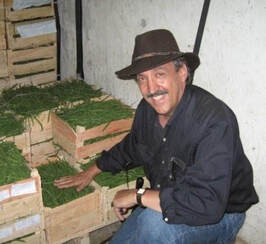 Paul Guenette is a recently retired economic development manager with expertise in international agribusiness. Mr. Guenette designed and managed development programs in a career spanning 45 years and 90 countries. Inspired by a Cheyenne story W/editing assistance by Wayne Leman TSESSOHPETANENĖSTOVE TSEXHOTOVANATO: hetsėtseahe LIVING THROUGH DIFFICULT TIMES: an analogy of today. Mo’aenevėhanehe. Mo’ȯseetonetȯhanehe. It was winter time. It was very cold. Hesta’se mohma’xėhovėsetsevanȯhehe. Snow was piled everywhere. Kȧhamaxėstse tseohkėho’ėšeme moma’seohtsehanehe. Camp firewood was being used up. He’nostonėšemȧhanevȯse moxheomėsėhaahpe’eenoo'ehanehe. No one could go after firewood because the snow was too deep. He’nostonėšenȧho’ȯhtsevȧhtsevȯhtse. They could not even visit each other. Hestamevo mohno’easema’seohtsehanetsehe Their food was dwindling. Menȯhtse naa honovohko mo’asemȧheestȧhenovohe. Berries and dried meat were being depleted. He’nostonėšeeve’tomo’evȯhtse. It was difficult to go to another teepee to get some food. Heseeotȯtse, hetanevano’ėstse, šeštoto’e mo’asema’seohtsehanevotse. Medicinal herbs, man sage, cedar and other healing plants were vanishing also. He’nostonėševestȧhemovȯse tsehaomohtȧhetsese. It was difficult to heal those who were sick. Otaxa mohxaehe’kėto’omoehevohe heveenotsevotse The only thing people could do was to stay in their teepees. Kȧsovaaheho naa hetaneo’o tseešėhaa’ehahese mohtaohkėheemȯhenėhevohe, hovahno he’nohkeme’ovovȯse; otaxa mo’ȯhkeevȧho’ėho’ȯhtsevo. Young boys and older men went hunting, they could not find any animals; they came back empty-handed. “Nahko’e, neseemȧhehaeanama, natao'sėhenȯhtsevoomoo’e hotovao’o naa heva vaotsevahno,” heške moxhetȯhevohe. “Mother, we are all so hungry. I’m going to look for buffalo or deer,” he told his mother. Mo’exovee’ėsanėhehe. “O’haetanoo’e” heške moxhetaehevohe. Mȧhtohto hohtȧhnaesohto aenamėhehe mohnėhestȯheaenamȧhehe. He dressed warmly. “Be very careful,” his mother said. He was only 16 years old. Nešee'ėše mo’eohtsėhehe. Moxho’oxeohtaanėhehe tohtoo’e. Naohkeva’neaestomenestovoo’e Esevone moxhešėtanȯhehe. He wandered for two days. He decided to stay out one more night. He thought he could hear the rumbling of buffalo somewhere. Tsehtšėšeepėhevevoo’ȯhtse na’ėstse hotova’e moso’hovenehoveoeotsėhehe. Mohma’xeoeveohtsėhehe. Nėseehaesto esevone moso’hovenehoveoehevohe. Once he was settled and warm, he prayed to Ma’heo’o, asking for guidance for himself and food for his people. Then, finished, he looked around. There a distance from him, a buffalo suddenly stood up and shook the snow off. Soon, there were many buffalo standing up, shaking off the snow, and beginning to graze as only buffalo knew how. Mohva’neahto’heenȧhevohe. They had just been buried in the deep snow. Nehe hetaneka’ėškone mostaevėhenėhetȯhevohe hevo’ėstanemo. That young boy went to tell his people what he had seen and where. Tse’ešeevama’seanehnevȯse naa tse’ešeevamȧhena’so’enȯhevȯhtse mo’oesevehohevohe nehe hetaneka’ėškone. Hotovao’ȯhme’ovȯhtse. When the meat was butchered and all were fed, a name was ceremoniously given to the young boy: The one who finds the buffalo. 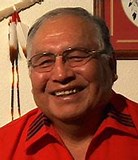 Dr. Richard E. Littlebear is President and Interim Dean of Cultural Affairs at Chief Dull Knife College located on the Northern Cheyenne Reservation in Montana. He actively promotes bilingualism, advocating for bilingual education on a local, state, national and international level. He encourages the continued oral, written and reading usage of the Cheyenne language specifically, and of all indigenous languages generally. He considers learning to read and write the Cheyenne language -- his first language -- as his greatest academic achievement. Questions What do I know of hunger? They say the starving dream of food. I heard Depression era stories My mother’s painful account: days with nothing to eat. I confused her with Cinderella. What do I know of hunger? They say the starving dream of food. There were childhood commandments My father’s admonition: please finish everything on the plate. There were children in Europe with nothing. What do I know of hunger? In dreams I see old lovers, old cities, I fall from trees and mountains, Forget exams, speeches, names of others. They say the starving dream of food. What is the difference between hunger And starvation? A few days, a week or so? A difference in dreams, perhaps? Here is a video of Judith reading her poem.  Judith R. Robinson is a poet and visual artist from Pittsburgh, Pa. |
Now more than everThese poems have been submitted to the call for poetry "Now more than ever" Archives
October 2021
Poets
All
|
||||||||||||||
 RSS Feed
RSS Feed